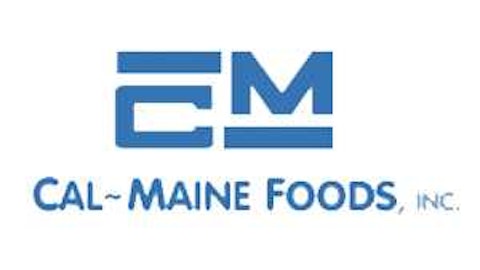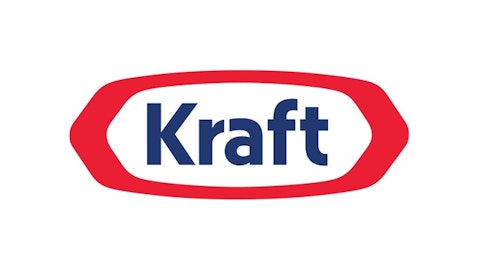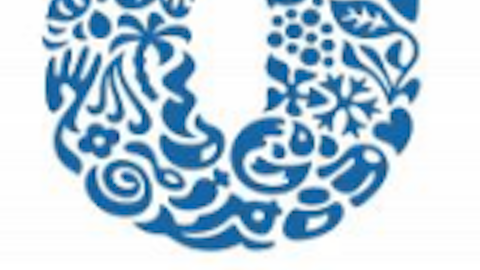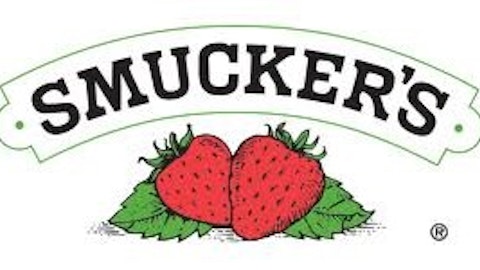Profit is the life of a business, and the following companies are carrying solid profit margins. But is that a good enough reason to make them a part of your portfolio? Let’s take a good look at a few companies that have reasonably good margins to see if they have any other reasons to buy them… or if they’re really value traps in disguise.
Not a Lock
Cal-Maine Foods Inc (NASDAQ:CALM) is a fairly young company, having only been started in 1969 and having its founder still be in charge. This usually keeps a business moving in a positive direction, as founders have the most vested interest in making their companies as good as they can. Cal-Maine is also good because it pays a 3.4% dividend and is only trading at around 13 times its earnings. For a company with a $1.2 billion market cap, Cal-Maine’s profit margins are quite strong at 7.4%.
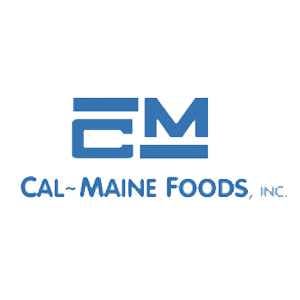
Trimming the fat
Kraft Foods Group Inc (NASDAQ:KRFT) is a well known company with many powerfully branded items. Carrying a 3.5% dividend yield and 8.8% profit margins, the company seems to be a prime investment that uses its cash well and can easily keep paying its dividend without sacrificing growth potential. Being one of the larger companies in the major diversified-food sector certainly doesn’t hurt, either — larger companies usually have a bit of a hedge against bad times because they can lay off employees, sell assets and use their goodwill to borrow if something bad happens.
Unfortunately, something bad is happening. Despite the reputation of Americans being overweight and unhealthy, we’re wising up. Kraft hasn’t quite caught on to the fact that putting trans fats into foods that are marketed as healthy isn’t a good idea — and people who read the labels take offense to this. The company is facing a class-action suit regarding its Vegetable Thins, Teddy Grahams, Premium Saltines and other products Kraft produces. At issue is how the items are marketed versus their artificial trans-fat content.
This could be a major hit to Kraft, or it could pivot as well as it did in 2003 with Oreos by reformulating or re-branding the products. If you’re okay to endure an earnings multiple of 21 and a potentially disappointing earnings shortfall if the company has to pay a class-action settlement, Kraft may be a great investment for you.
Cleaning up its act
Unilever plc (ADR) (NYSE:UL) is the biggest maker of ice cream and the third-largest consumer-goods company on earth by revenue; so there is definitely some stability based on the company’s size. There’s a good chance you use Unilever products, like VO5, Dove, Hellmann’s, Lipton or Ben & Jerry’s — again, great for the company’s prospects. There are few better moats than a strong brand. The fact that Unilever is also pulling an 8.7% profit margin and has a $119 billion market cap also don’t hurt in the least.
The company should have no trouble continuing to pay its 3.3% dividend yield. Unilever plc (ADR) (NYSE:UL) has also made some bold declarations about how sustainable it wants to be, such as by substantially decreasing its environmental footprint and aiding 1 billion people in improving their health and well-being. So far so good, right?
Unfortunately, Unilever plc (ADR) (NYSE:UL) has its issues. For one, the company is a trifle pricey at around a 21 earnings multiple. Given the company’s strong overall position, you could pretty much let this go, though. Unilever has also been criticized for purchasing Indonesian palm oil that is contributing to an annual 2% deforestation rate within Indonesia. Because of illegal uses of certain land to grow the palms and fire to clear the land, Indonesia is the world’s third-largest producer of greenhouse gases — and Unilever has supported this practice by purchasing massive amounts of palm oil.
To the company’s credit, for each ton of palm oil it purchases it also purchases a certificate from GreenPalm that rewards sustainable palm-oil producers. It still sounds a bit shady, and this could still blow up in the company’s face from a PR standpoint. If you’re confident that Unilever plc (ADR) (NYSE:UL) is cleaning up its act, this could be a decent contrarian investment — though waiting for a dip in the price would be a good idea.
The Foolish bottom line
There is great value in the more profitable companies of the major diversified-food industry. You just have to be aware that even a good company may sometimes do bad things. If you’re okay with this and possibly a higher earnings multiple than the S&P 500, you can find some good companies for less than stellar deals.
Chris Hodge has no position in any stocks mentioned. The Motley Fool recommends Unilever.
The article Strong Profits in Diversified Food Production originally appeared on Fool.com.
Copyright © 1995 – 2013 The Motley Fool, LLC. All rights reserved. The Motley Fool has a disclosure policy.

